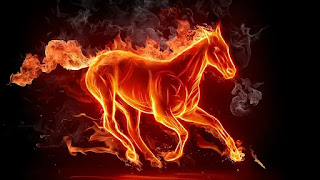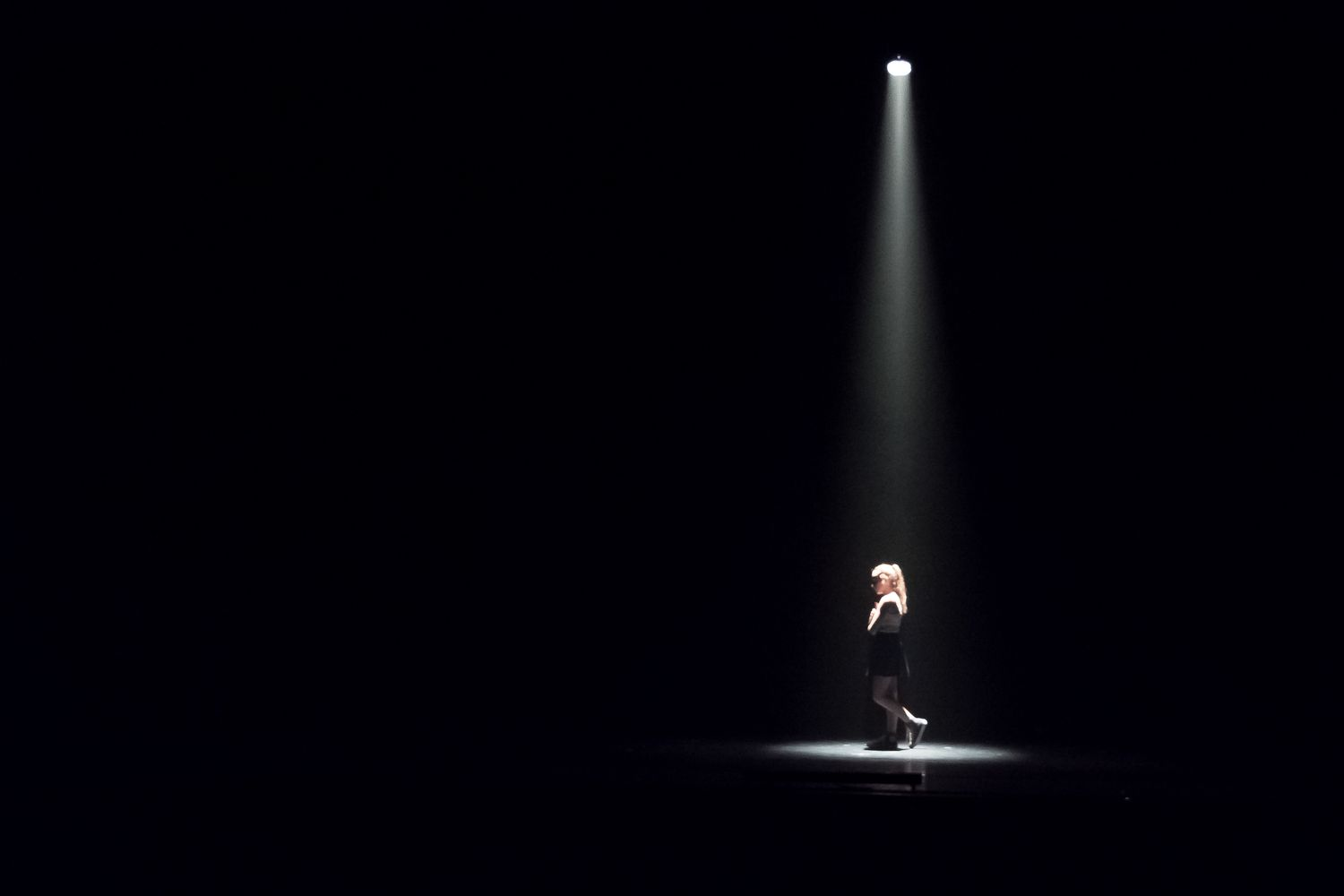Human sight is the ability to use intellect and sense to investigate reality. Like a child who looks down at a caterpillar in curiosity or gazes up to watch drifting clouds, man can lower his sight to condescend to the physical nature of reality or lift his sight upward to spiritual truth. The higher or lower man tries to probe, though, the less he can see without help. Thus, man's sight will inevitably fail if he tries to examine a facet of reality too high above or too far beneath him. For instance, though one can use his eyes to explore the intricacies of a leaf, he may need to first climb a mountain to see the entire forest. God resides at the pinnacle of spiritual truth, so man cannot truly see enough to understand Him unless his vision is first exalted. In Paradiso, Dante Alighieri demonstrates his need for divine intervention to see God through his discussions with Beatrice and St. Bernard, indicating that man’s vision must be exalted before he can fully know God.
Beatrice's conversation with Dante demonstrates that he cannot perceive God fully without heavenly intervention. When Beatrice leads Dante to the Empyrean, the highest and purest level of heaven, the realm of the mind of God, he is blinded by heavenly light until God opens his eyes. Speaking to Dante, Beatrice says, "We're [now] on the outside of / the highest body, in the purest light, / in intellectual light, light filled with love, / love of the true good, filled with happiness, / happiness that surpasses all things sweet" (30.38-42). God's intellect, filled with love and joy, is so pure and delightful that it manifests as light– the purest and most delightful of physical substances. Dante then says, "Just as a sudden lightning flash will scare / away the power of vision and deprive / one's sight of things made brilliant in the glare, / I was now enveloped in a live / gleaming of light that veiled me in a veil / so vivid all around, I lost all sight" (30.46-52). Sight is the primary sense by which humans gather information from the world around them, so without sight, one would be practically blind to much of reality. Healthy human eyes are struck blind when faced with a sight too intense for them to register, such as a nearby flash of lightning. Likewise, Dante's inferior human sight and intellect are stunned into blindness by the overwhelmingly pure light of God's intellect. He remains blind to his surroundings until God's love operates on him to lift his vision. Beatrice says, "The love that soothes this heaven has the power to heal / the souls it takes unto itself, with grace / to make the little candle fit to feel / His flame" (30.52-54). Beatrice reveals to Dante that God's love and grace can remove his it natural blindness, readying him to experience God. Immediately after Dante hears her words, he finds the strength to investigate Empyrean. "As soon as these brief words found their place within my understanding," Dante writes, "I became / aware I had surpassed my former might: / and a new power of vision burst aflame" (30.56-58). Dante is only granted the ability to see Empyrean after Beatrice declares that God can grant him sight, implying that God intervenes to elevate his sight. Beatrice, Dante’s former lover, would have granted him the ability to see if she could. However, she entreats God to help Dante see. God alone can operate on Dante’s eyes to allow him to see the light of God’s mind.
Saint Bernard's prayer to Mary also underscores Dante's need for her help to overcome the limited range of his intellect and his inability to wield it capably as he experiences God. Dante narrates, "Then [St. Bernard and Dante] turned to the eternal Light, / wherein, we trust, no creature else can send / created vision with such perfect sight" (33.43-45). Logic dictates that one can only create something less complex and powerful than himself. Otherwise, the creator would be unable to conceptualize a design for His creation and harness enough power to implement it. God created humanity, so humanity is less complex and powerful than he. Humanity’s created sight is not powerful enough to plumb the depths of God’s uncreated nature, so humanity cannot fully comprehend Him on its own. Humanity, however, does have some limited capability to look up to God, though it typically fails to utilize the capability that it has. Saint Bernard encourages Dante to "penetrate / His rays, as far as human sight complies" (32.143-144), indicating that Dante can perceive some of God but not all of Him. Humanity’s physical passions limit its ability to understand God by distracting its efforts. Saint Bernard describes humanity's physical passions as a mist that clouds the intellect and asks Mary, the Mother of God, to "melt the mist away / that clouds the intellects of mortal men, / in order that the highest bliss display / Himself to Him … [and] let human passions yield to your protection" (33.31-37). The physical and spiritual eyes, representing humanity's ability to perceive physical and spiritual realities, become ineffectual when their wielder is distracted by human passions. For example, a mathematics major who is consumed with hunger during class must tame his distracting appetite before he can focus enough to learn calculus. Accordingly, for a human to muster the strength to understand his God, he must free himself from all physical passions so that he can wholeheartedly seek God. As Dante says, “And I who now was drawing near the end / of all desires, as it behooved me, to / the summit let my leaping flames [of passion] ascend” (33.46-48). The desire for God is the summit, or the highest object, of human desire. One can only satisfy his desire for God after leaving behind all other desires that would distract his aim. Since humans live in physical bodies, they cannot rid themselves of physical passions alone. Dante, likewise, needs all his mental faculties to comprehend God, but his human nature prevents him from harnessing his already limited sight. Therefore, Saint Bernard asks the Mother of God to subdue Dante's distracting passions as he approaches the Trinity.
Throughout Paradiso, Dante uses a fictional representation of himself to show that human nature prevents one from seeing God without divine aid. Among the physical creatures, God has given humanity alone the ability to see into the natural and spiritual realms. Man has skillfully harnessed his God-given sight to condescend to the nature of reality, so his inability to understand the One above him often frustrates him. Christians today are often dazzled by the little that they can see of "the one who moves all things" (1.1) and may become discouraged by their inability to fully understand the object of their devotion. Dante reassures these Christians by demonstrating that no man can view God’s complete nature from earth since He is far removed from the range of natural sight. Instead, Christians can rest in the knowledge that the mystery of God’s nature will be revealed after death, when Christ lifts their vision to the pinnacle of His majesty.






